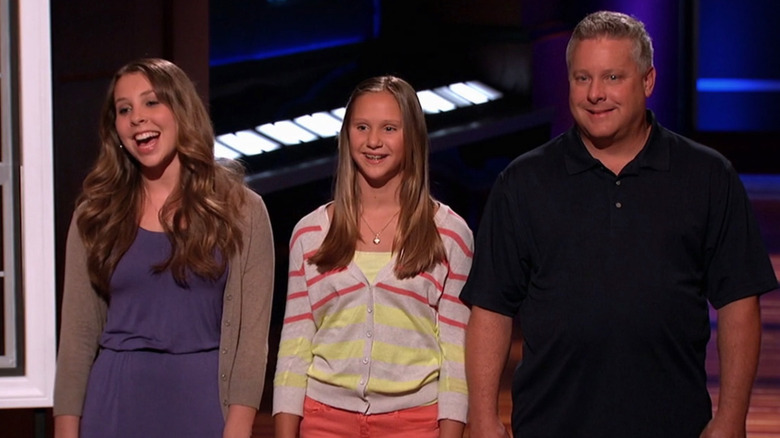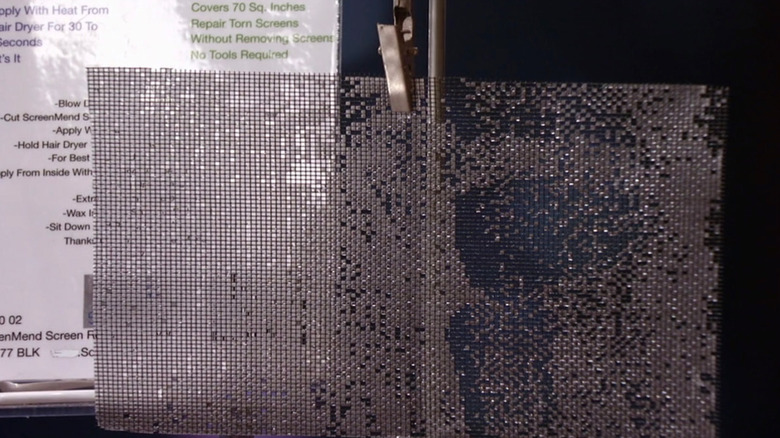Whatever Happened To ScreenMend After Shark Tank?
One thing the sharks on "Shark Tank" tend to eat up is a pitch from a family-owned business with a great story–especially when kids are involved. Consider the Measuring Shovel, the gardening shovel with depth markings, or Boo Boo Goo, the paint-on bandage. Another is the ScreenMend. It's the brainchild of then-12-year-old Lily Hooks, who pitched the product along with her then-15-year-old sister Emma and their father Brian. ScreenMend is a simple solution to a common household problem: holes in screens on doors and windows. Essentially, it's a wax sheet that can be cut and then melted to fill holes in said screens, with the aid of a hair dryer.
The Hooks family went into the tank to pitch ScreenMend during Season 5, with their episode airing in October 2013. They asked for a $30,000 investment in exchange for a 25% equity stake in their company. Daymond John, Kevin O'Leary, and Robert Herjavec all felt the business was too small to be worth their attention. Mark Cuban, seeing himself in the Hooks family, met the Hooks' offer. Then, Lori Greiner upped the ante by asking for 50% for the same amount. The Hooks shook hands with Greiner, hoping to capitalize on her QVC connections.
Was this a good idea? Short answer: yes.
Products like ScreenMend are why Lori Grenier is on the show
Lori Grenier is known as "the QVC Queen" for good reason. A year after the Hooks family appeared on "Shark Tank," they returned to provide an update. In that time, Grenier used her QVC connections to great effect, filming an infomercial for ScreenMend along with Emma.
As the Hooks explained during their initial pitch, the Hooks invented ScreenMend about three years before they went on "Shark Tank." In that time, they sold a mere 750 units at $6.95 per, for about $4,000 in sales. Within just ten minutes of their QVC appearance, they sold out of all 32,000 units–which, on QVC, were sold at $18.16. Since "Shark Tank," ScreenMend did about $900,000 in sales.
Greiner also helped the Hooks get into several stores. At the time of their "Shark Tank" pitch, the Hooks had only secured a provisional patent, not a utility patent. While Bed, Bath & Beyond and Home Depot showed interest in their product, their packaging was a sticking point. They were also still operating out of their family garage. With Grenier's help, the Hooks were able to secure improved packaging, which got them on not just Bed, Bath & Beyond's and Home Depot's shelves, but those of Lowe's and Ace Hardware as well. Even better, Grenier helped them secure a manufacturing facility.
According to Lori Greiner's website, in the six years since the Hooks' "Shark Tank" episode aired, ScreenMend has done $18 million in sales. We'll call that an unqualified "Shark Tank" success story.

